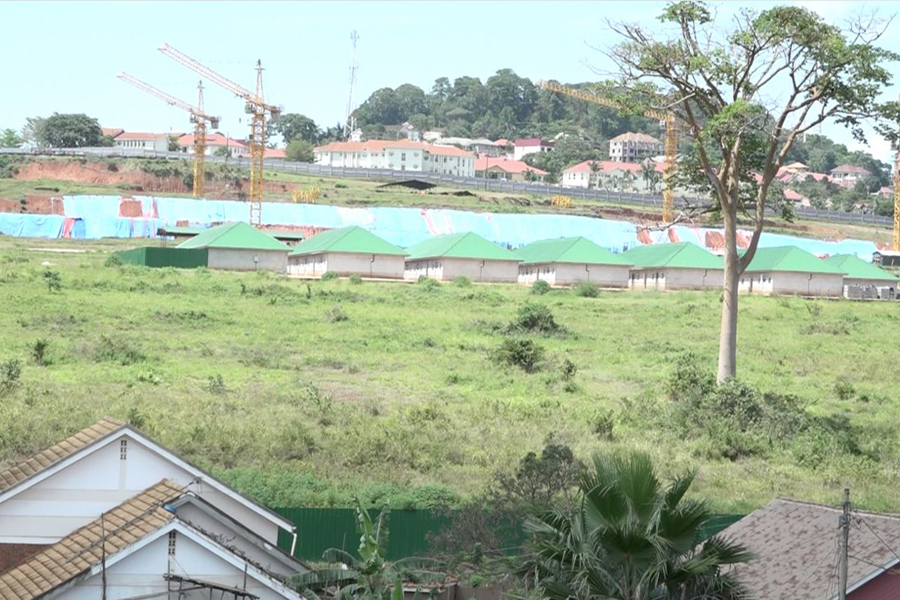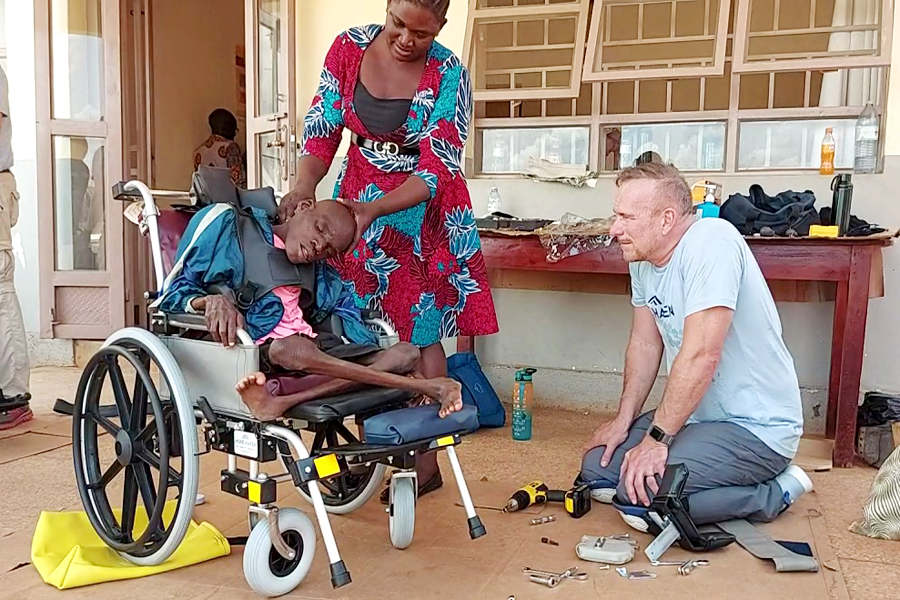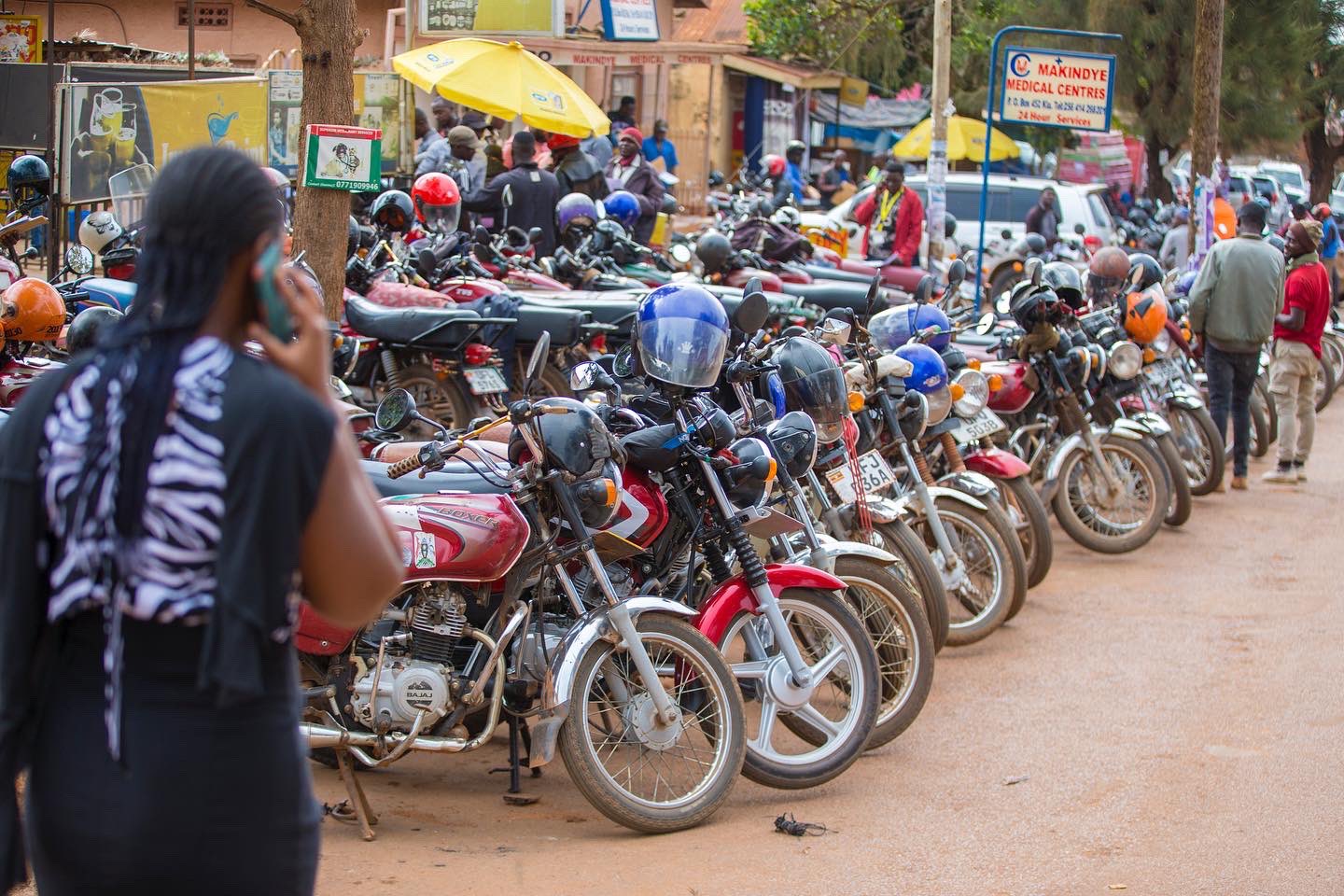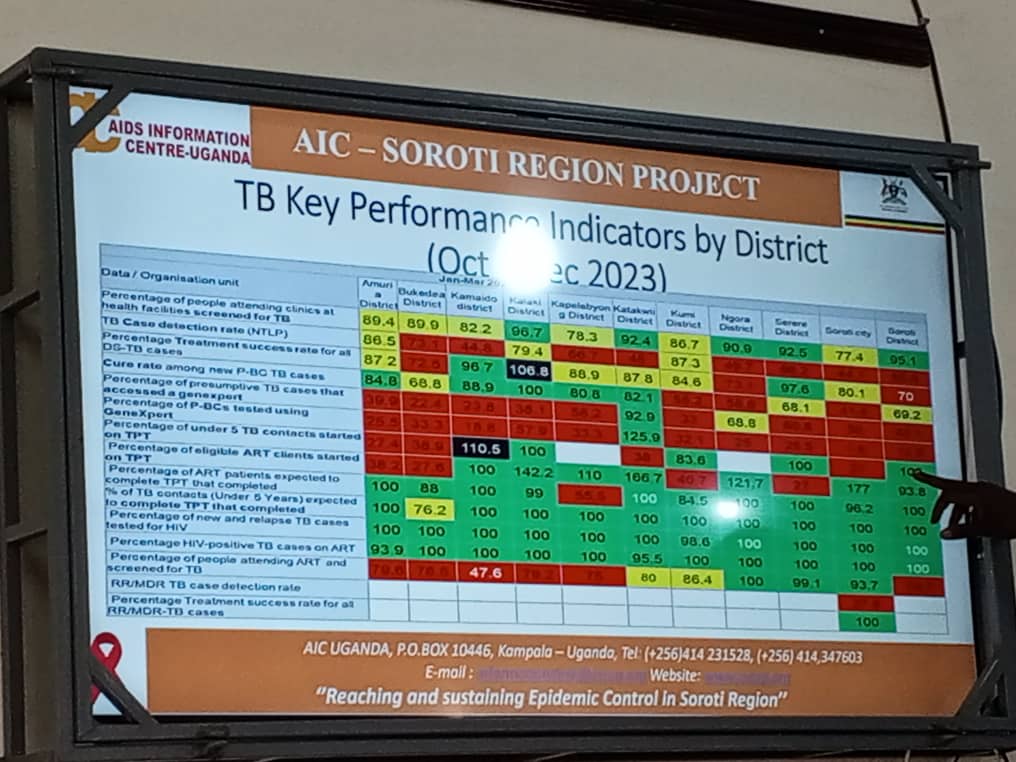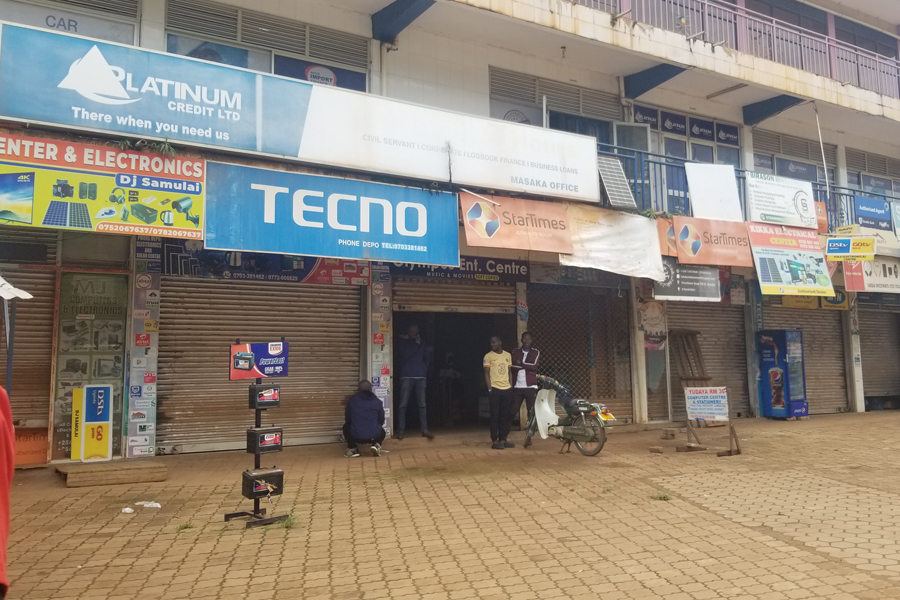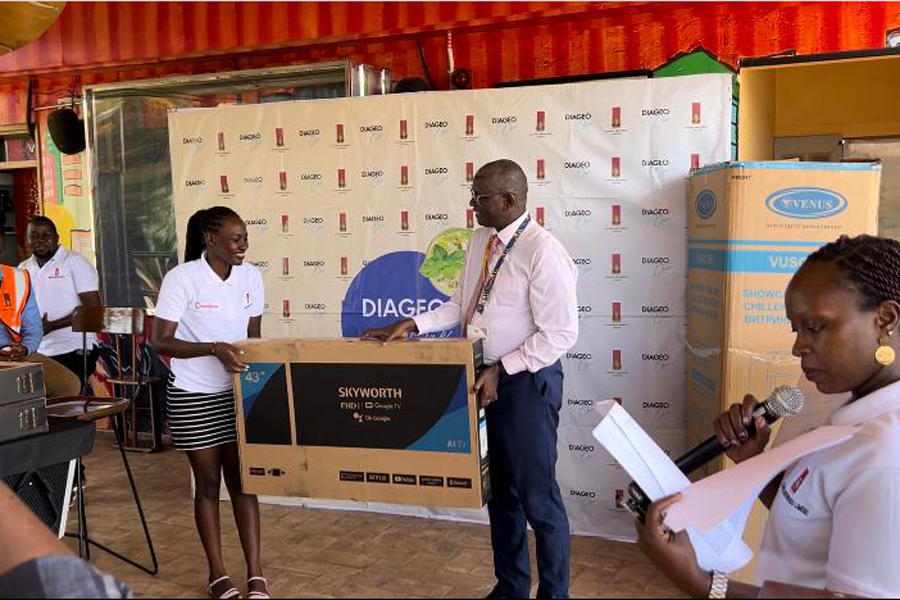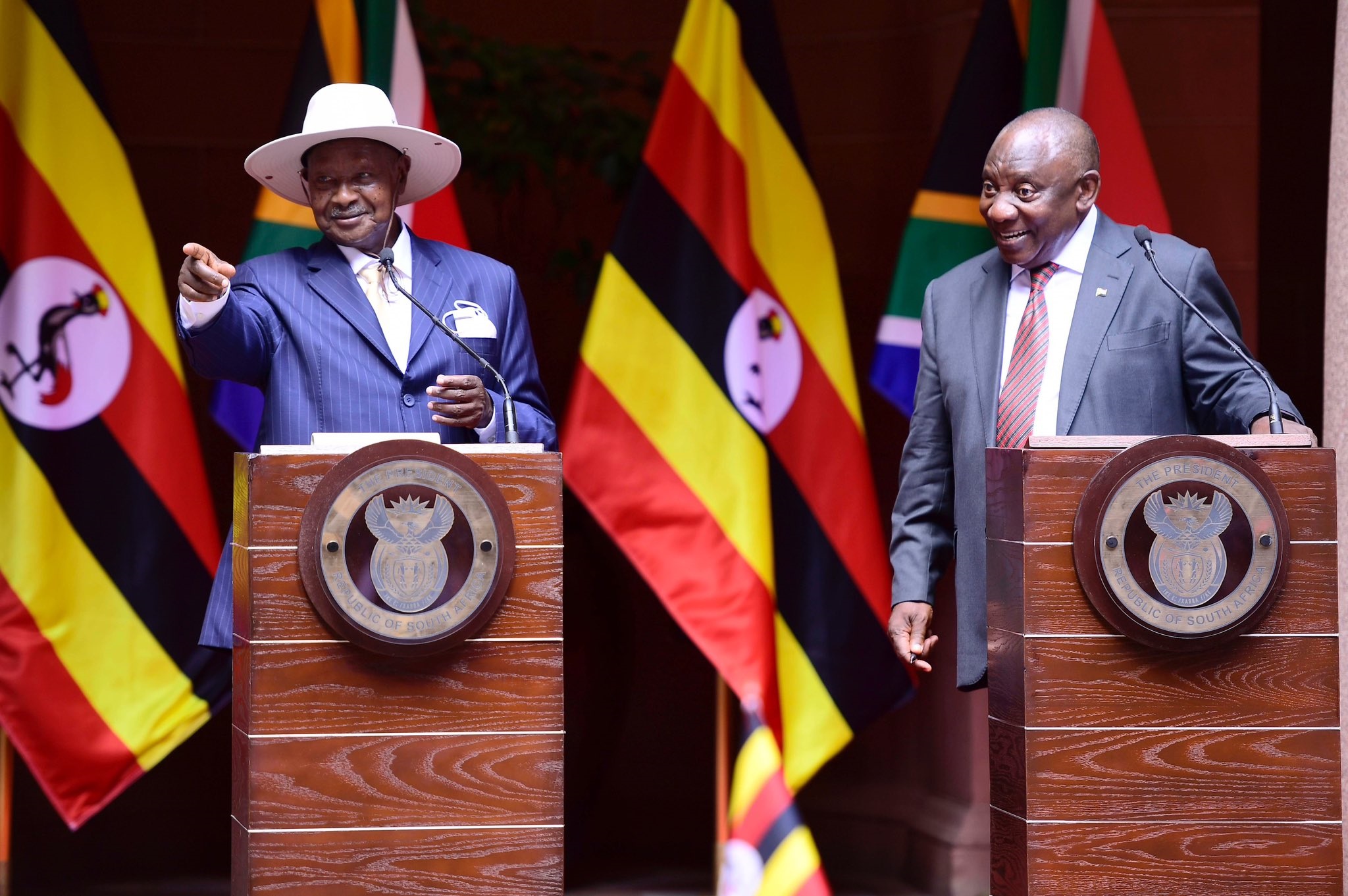ROBERT JJAGWE
On 28th December 2017 we received information through the press that the new Cranes coach Sebastien Desabre will be earning about Shs 72 million per month.
We also heard that government appears to have accepted to meet half this Salary but only with effect from the next financial year that begins in July 2018.
For starters I am an admirer of what Engineer Moses Magogo has done with FUFA and to be honest, football is bigger than many of our sports federations.
Sometimes we need to call a spade a spade. But what I believe is not right is the cost – benefit analysis around this news of the Cranes Coach salary.
And I am not talking about the benefit to the national soccer team. I am talking about the cost – benefit picture in relation to the growth of other sports federations and in relation to government priorities.
Last year in December, table tennis took a team of 3 female players to Mauritius without allowances and without a coach because we did not have enough money.
In fact if the Uganda Olympic Committee (UOC) had not helped us with two free air tickets, we would have taken only 2 players at most and again without a coach and without allowances.
Despite this, our girls managed to bag 2 Silver medals and 2 Bronze medals and emerged with a rank of number 2 in a Continental Zonal Championship meant for 14 Countries of the Eastern Block of the African Table Tennis Federation (ATTF).
By the way our Table Tennis team missed 2 Gold Medals very narrowly. In the team events, they took tournament hosts Mauritius to the wire in a game that went to deuce at 10 – 10, then it went to 11 – 11 and finally Mauritius won it with a score of 13 – 11.
And this is where the cost – benefit picture comes in. Our Table Tennis girls coached by a local Ugandan coach managed to take Mauritius to the wire with all the wonderful facilities the Mauritians have.
Mind you the Mauritius Table Tennis team also has a foreign coach who is French. The hall in which the games where played is a permanent home for the Mauritius Table Tennis Association meaning they can use it for training 24 hours a day, 7 days a week.
For us here in Uganda, the home of Uganda Table Tennis Association (UTTA) is the Ravall Hall of Kololo Senior Secondary School. We can only use it after classes during the week. Every year, when UNEB Exams start, we cannot use this Hall.
The story of our netball girls is another great one. They went through what we call hard life, due to poor facilitation, but managed to overcome much stronger teams with far better facilitation and they became ranked 9th in the World last year. Right now they are ranked 7th in the world.
With the correct facilitation I don’t see how Uganda cannot dominate the world of sports at least on the African continent.
Just imagine if the table tennis girls had travelled with their coach or if they had been able to rest properly after landing in Mauritius.
Now let us look at the Monthly salary of the Cranes coach, whom the government appears to have committed to pay the half which is Shs 36 million per month.
Assuming it is true government is going to pay this money, which from many angles appears to be the case, then the next question is, what about entire federations that can utilise this very amount of money per month but this time for the entire sports federation and not just for one person in the whole federation?
With 36 Million per month, Table Tennis can acquire about 15 new Tables per month.
Each Table can train up to 16 players of the game. So 15 tables per month would translate into 240 new Table Tennis players per year and hence 2,880 new players per year.
So with 36 million, table tennis will be able to enrol 2,880 new young men and women into sports per year. This is the same as reducing government headache over youth idleness by taking 2,880 idle youth into active sports via table tennis.
I tend to think that sports should serve two purposes for any nation in the modern world. One is to bring in foreign income and the second is to promote patriotism, peace and unity.
I can tell you confidently that if table tennis had 36 million per month provided to it, we would rule table tennis on the African continent within 2 years and we would become a force to reckon with on the world stage within a further 2 years.
This would translate into more tourism revenue for Uganda as Africa and the whole world turns attention towards Uganda to learn how we do it. We got silver without facilitation, with that kind of help from government, a gold medal would be simply too obvious.
Table tennis would also boast of enrolling over 10,000 youths into productive sports within a period of four years.
Now I know that games such as badminton, swimming, lawn tennis, squash, archery, rowing, boxing, etc can all properly utilise Shs 36 million per month and produce wonders for Uganda both in increased foreign income and massive reduction of dangerous youth idleness.
By the way if you notice, countries where sports is really well developed, there is also very admirable peace and stability.
Sports is one sector that can teach people how to win or lose peacefully and they go home and sleep without causing any serious turmoil.
So what is the Ugandan government priority? Is giving so much money to one foreign national better than harnessing the above benefits by giving this same money to an entire Federation? Where does Uganda benefit best?
Mind you I am not criticising government. No not at all. I think from some angles, government may not have seen these issues like the ones I have raised.
I also believe, like President Museveni said, the time has come for Ugandans who have these ideas and thoughts to come out and share them with government so that government makes the best decisions. In the end we may actually need a Sports Think Tank.
This would be a group of people paid to think of ways how Sports can really become the next money minting Sector for Uganda. Sometimes we blame government for nothing.
Many people in government sometimes have too much on their plates to expect them to take time off to think about issues such as the above.
In many developed nations, there are special think tanks for different sectors.
Sweden and Norway even have an annual award called the Nobel Prize for people who sit down, think and come up with great ideas or innovations to make people’s lives better.
Many developed countries have specialised people who are paid to think of ways to better the country.
If citizens such as myself never tell government about these wonderful ideas and thoughts, then better interventions in our Sports sector may never be realised.
I hope that Ugandans such as myself who can take time off to analyse and think for the country at no pay at all will be listened to and our suggestions taken into serious consideration.
If one sees nothing worthwhile in what I have written, at least I have said above that sports can be the next money minting sector for Uganda.
So how can we tap into the now highly profitable Global Sports Market which our UOC General Secretary, Dr. Rukare, informed us is set to generate $ 91 billion in revenue.
$ 91 billion is a whopping Shs 336 trillion. So are we going to continue to allow the rest of the world to enjoy all this money as we continue sleeping?
For example the Egyptian football player Mohamed Salah is now one of the most valuable strikers in the English Premier league.
 Salah
Salah
He plays for Liverpool and earns 90,000 pounds per week. This translates into 360,000 pounds per month which is equal to Shs 1.8 billion per month. Now let us think; how much of this money does Salah send back to Egypt to help his family or to put up businesses to prepare for his retirement?
This is what I mean by continuing to sleep as other nations tap into this very lucrative Global Sports Market. If you look at Salah’s story above, doesn’t it make sense for government to invest in nurturing sports because the return on investment is clearly very attractive.
No wonder fore sighted business men like Lawrence Mulindwa (of St. Lawrence Schools) have even invested in their own football Stadiums.
Back to table tennis, our top world seed now is called Ma Long. He is a Chinese player who emerged as a power on the Table Tennis scene just about 5 years ago but he is reported to be worth about $ 20 million already.
That is about Shs 74 billion in about 5 years. Again Egypt and Nigeria have invested heavily in their Table Tennis players and many are now playing for foreign clubs, earning a lot of money in thousands of dollars per year.
A good chunk of this money is sent back to their home countries.
Table Tennis also has many world tours every year with total cash prize money now entering $ 150,000 (that is about Shs 555 million per tour).
Isn’t it worth it investing in our players to tap this money? As UTTA we need far less money to develop an athlete to the level of world champion contender.
With the girls we took to Mauritius, an investment of only Shs 300 million would see them become world contenders ready to start tapping this prize money within just 2 years.
The author is the president of Uganda Table Tennis Association (UTTA).





